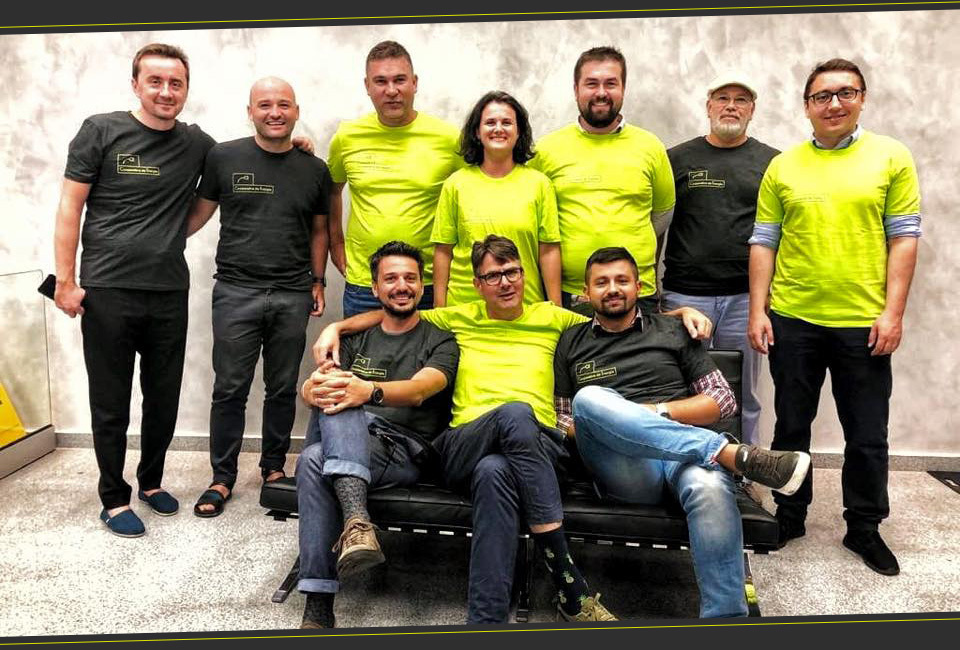Main Theme
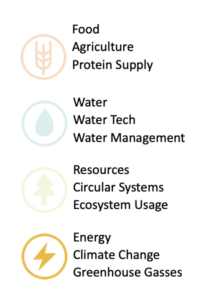
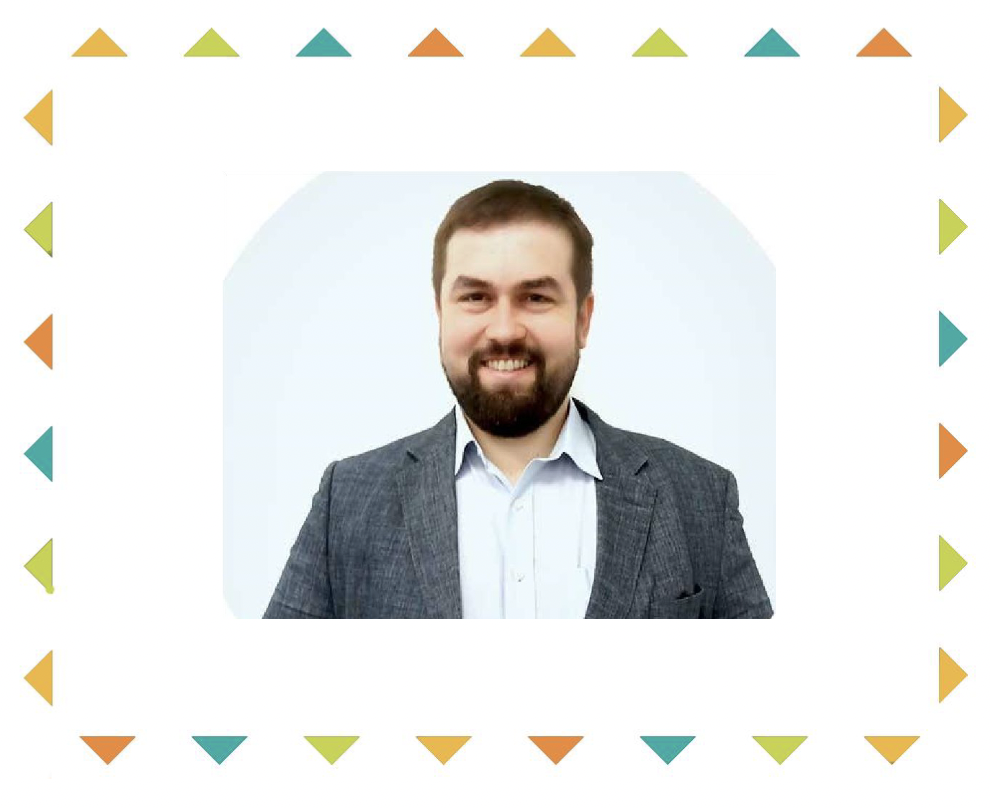
Introduction
The energy sector (electricity, heating & transport) accounted for 73% of global GHG emissions already in 2016. In order to decarbonise, we need massive electrification of this sector and also an accelerated increase of renewable energy share from the entire energy mix. What if we can accelerate the change, and at the same time empower citizens and reduce our dependence on external energy sources? Renewable energy communities enable citizens in Romania and in other European countries to actively participate in the energy sector by generating, consuming, sharing or selling electricity. Citizens can become not only consumers of green energy, but also producers. Could we imagine such a future?
The Energy Cooperative in Romania is an example of such a people powered energy project. One of the founding founders is Nicu Plai, an engineer by education and an IT engineer with a vast experience in enterprise solutions. For the last 10 years, he’s been an entrepreneur, mostly in the IT field. Like many sustainability leaders, his personal motivation in order to take part in this movement, as he himself says it: “is the legacy that I want to leave behind. During your life and activity, even if it’s professional or entrepreneurial, you do a lot of things, but what counts over the years is what remains behind. I consider sustainability, the impact that could be generated with the green energy transition for the environmental aspects and other causes very important for our world. It would be of huge importance for me to contribute myself with a small piece to this entire puzzle.”
The Energy Cooperative was founded in 2019, by a group of 15 people with diverse experience in business and in the field of power generation. Currently, it has close to 750 members, an established business line on 100% Green Certified energy supply, and around 150 clients, individuals and private. You can read more about the cooperative in a 4Revs case previously covered by Camelia Gui in 2021, here.
The Energy Coop: When communities become producers of green energy
Interview
“During your life and activity, even if it’s professional or entrepreneurial, you do a lot of things, but what counts over the years is what remains behind.”
Anamaria: First of all I would ask what made you all choose to establish the energy cooperative as a cooperative and not as a standard energy company (energy supplier or producer)?
Nicu: Because we want to bring a lot of people together. By launching a limited liability company or something similar we could be only a handful of people, but we want to generate impact on a social level.
Through the cooperation approach, I think we can reach tens or hundreds of thousands of people in our country and this could be the biggest impact that we can have – by educating others regarding these topics. By educating a group of people, you also affect those that are related to them so your real impact is much more powerful – it’s the network effect. That’s what we somehow want to transpose through this less usual business model. By educating people about the green energy transition, I think we could scale much aster than we could in a traditional business model.
So, by engaging people, which is not easy at all, we think that we can have much more impact on output.
Anamaria: Could you tell us at what stage the Energy Coop is, and what are your most important achievements?
Nicu: Regarding the cooperative member base, we are getting close to 750 members. One important achievement was that last year we bought an electrical energy supply business and since then, we have worked a lot on the operational side in order to establish it well and prepare it for scale up. Regarding this business direction, by now we already deliver energy 100% certified as green to our consumer base. At this moment we have around 150 clients, part of them are community members and a part of them are not.
Anamaria: Did you encounter significant challenges in this project and how did the energy crisis impact the cooperative?
Nicu: There were a lot of challenges, starting with registering the entity (the coop) to the local authorities, pre-registry and tax administration because it was somehow a new type of entity. But the biggest challenges were in the energy supply business because the market has changed a lot in the last year (editor’s note: due to the energy crisis). We owned the business before the market changed overnight and this was affected a lot by regulation from government ordinances. The government regulated the price that we are allowed to invoice to the end customer but we are forced to pay in full to our service providers. It’s expected that the government will pay that difference, the gap between what we need to pay and what we collect from the consumers. In order to not affect the business, the delay shouldn’t be longer than one or two months from the end of the operational month, but in reality it takes six to nine months, at least, (for the government) to pay the difference. So, there is a huge amount that we need to recover from the government. Somehow, we, as suppliers, finance this regulation (the government’s decision).
We also had another challenge – one of our energy suppliers didn’t provide us with the energy that we had contracted with for the first quarter of this year. Only this meant for us around 1 million euro loss. Now we are in trial with them to recover the amount, but probably, following the speed of trials in our country, it will take around four or five years to recover a part of that money, in the optimistic case. In the pessimistic case, they (the supplier) will disappear before getting to that point. So this is one huge challenge but, as I’ve told you, we didn’t get bored with this topic (laughs).
Anamaria: So a lot of unpredictability. What do you think are the most concerning aspects regarding the energy transition that we need?
Nicu: Well, the most concerning thing, from my point of view, is that green energy production doesn’t have continuity or predictability like hydroelectricity, although that is also affected by lack of water due to draughts.. But overall, let’s say hydro can produce energy 24 hours/day. That cannot happen with solar or wind. I think the challenge is to have continuity because you have consumption over all 24 hours of the day. A solution for this could be batteries, energy storage, but at this moment it requires a lot of rare natural resources, minerals. Also, it is quite expensive to store very much production. At this moment I think this is the biggest challenge how to cover these 24 hours in full with green energy in a large amount from the total consumption.
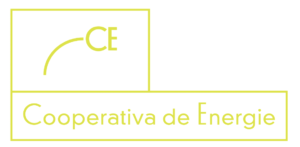
Anamaria: What are your plans for the future?
Nicu: Here (regarding the business line) the strategy is to supply green energy to home consumers mainly and to bring prosumers into our customer portfolio. Prosumer means those that have on their rooftops some solar panels that generate energy and partially or fully compensate for the energy that they consumed by their production.
Regarding community growth, we have had no new activity in this direction lately, but we plan to launch a funding campaign this quarter in order to buy 10 megawatts of solar production. We plan to grow the community base because it’s a condition to be a community member in order to have access to investing (in the coop). We will have more and more activities in order to grow our community base and I hope we reach soon the 10,000 members in our cooperative milestone.
Anamaria: You mean 10.000, not 1.000, right?
Nicu: 10.000, so to grow 10 times.
Anamaria: Oh, wow.. an ambitious plan. So, to check if I understood correctly, you’re saying that only members can invest in the Coop and by members you mean private individuals?
Nicu: Through our entity type (editor’s note: legal status) we allow to join our community European citizens, so it is not available only to Romanian people. We have a few (community members) from across Europe, most of the members are private individuals, and a few are organizations, both for-profit and not-for-profit. So we have three types of members, but the biggest number are private individuals.
We also plan to get to 3.000 residential consumers and 2.000 prosumers. These are our milestones for the next two years. Our first direction in which we’re going to develop is the focus on prosumers and we plan to bring the most value to them. Because we, as a supplier, are able to capture the value from the market and pay as much as possible to them in order to sustain this movement, [and] the network effect. The first step is paying them for the production, for the supply part of the business.
For the cooperative, we want to build our green energy production portfolio, so we want to buy 10 megawatts of solar projects this year, that are being finished now. At this moment we are in advanced discussions with two projects. From those 10 megawatts, there are two 5 megawatt sites: one is completely new, which started to produce yesterday (in september 2022), and the other one has 1 megawatt installed a few years ago, which has green certificates and also is extended with another 4 megawatts. It is technically finished but is estimated to be connected to the grid in December (2022). We want to buy these by fundraising from our community and also a mix of other financings. For the long term, we want to bring yearly a few megawatts of solar production, probably, or other green energy production by buying or by building it ourselves. So this is the strategy and we hope to have a new acquisition of production sites every year.
Regarding the impact that we want to create, we have started to establish an NGO, that will be part of the cooperative group and will have the purpose to educate the market. The overall strategy is to educate the market regarding energy efficiency, green energy and energy security. The first focus will be on the group of potential prosumers, those that are not already prosumers, but somehow to facilitate their access to knowledge, to make a free way for them from the idea to the go-live step. So this is the direction for this third big objective.
Anamaria: Does the energy coop collaborate with other entities? If so, how are the collaborations going?
Nicu: We have interacted during these years with many entities. I think the most important partner is Greenpeace Romania and we have a strong collaboration with them. They currently have a campaign about what energy communities are. Working together with Greenpeace, I think, will help a lot to develop energy communities in our country in the near future. I hope to continue in this way.
Public partners are not very interested to be active in this direction at this moment. Mainly we interact with different associations or different NGOs or even private businesses that support the business and so on.
We are part of a European Grant in LIFE Programme and we address through that grant exactly the energy communities. We work with a group of entities from across Europe. The main entity in this joint project is REScoop, a network of cooperatives across the European Union. We try to create some working frameworks in order to facilitate the Energy Community creation in the Eastern Europe area. We have members of the consortium from neighbouring countries like
Greece, Croatia and we discussed with Baltic countries and tried to bring together Poland,
Hungary and maybe Ukraine. I think what we do there will help a lot of the energy communities.
It would be great if we would get support from the state, first of all, by regulations, in order to have the laws more suitable for this kind of movement. The plan is to also address the local authorities, to bring them together in our movement, to take part as an energy community, or at least to get them to know about us.
We also think that finding support in education institutions from university levels could help in aggregating people and maybe reaching the students. This kind of partnership could be beneficial for both parties, but we’ll see, we have a lot of things to do and a lack of resources, as it usually happens. We need to get the priority items on the list and some of them will be waiting for others to be solved.
“Focus on one very important project at first, one that generates impact from your perspective and is also important for the community that you represent, like a lighthouse project”
Anamaria: What advice would you give to other NGOs and people that would like to start similar initiatives in their countries?
Nicu: Focus on one very important project at first, one that generates impact from your perspective and is also important for the community that you represent, like a lighthouse project (in tech terms).
“Benchmark visit with Electroalfa International Group, organised by the Kaizen Institute Romania”
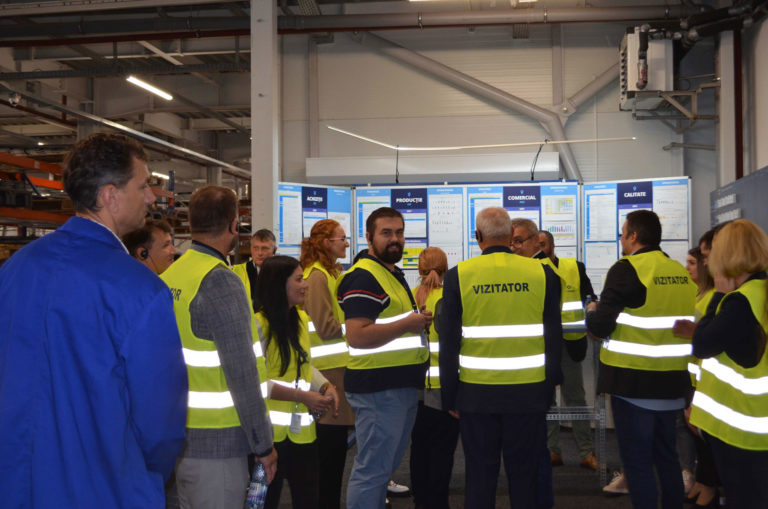
Links and Contact Information
The energy coop’s website: https://cooperativadeenergie.ro/
Nicu Plai’s LinkedIn: https://ro.linkedin.com/in/nicuplai
Photo credit on page 1: https://play-solutions.ro/despre-noi/
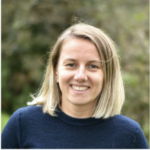
Anamaria is a self-taught climate activist, educator and co-author of an environmental education course. She is passionate about finding ways to thrive as a society within planetary boundaries.

Noemi Salantiu is a community builder and expert in online collaboration and digital storytelling. She is a co-founder of Edgeryders.eu platform for changemakers and previously worked in plant protein production.
Humanity is facing four essential survival challenges (4Revs) - or bottlenecks - which we must overcome to enable the continued flourishing of life on Earth: Food, water, resources, and climate
change/energy (details below). These four areas will require revolutionary innovation and, at the same time, provide a treasure trove of new opportunities.
4Revs is a unique, co-creative ecosystem that aims to help humanity solve these four survival challenges in one generation – between 2020-2050.
Thank you for partnering with us.
4Revs© Anamaria, 1st of October, 2022

